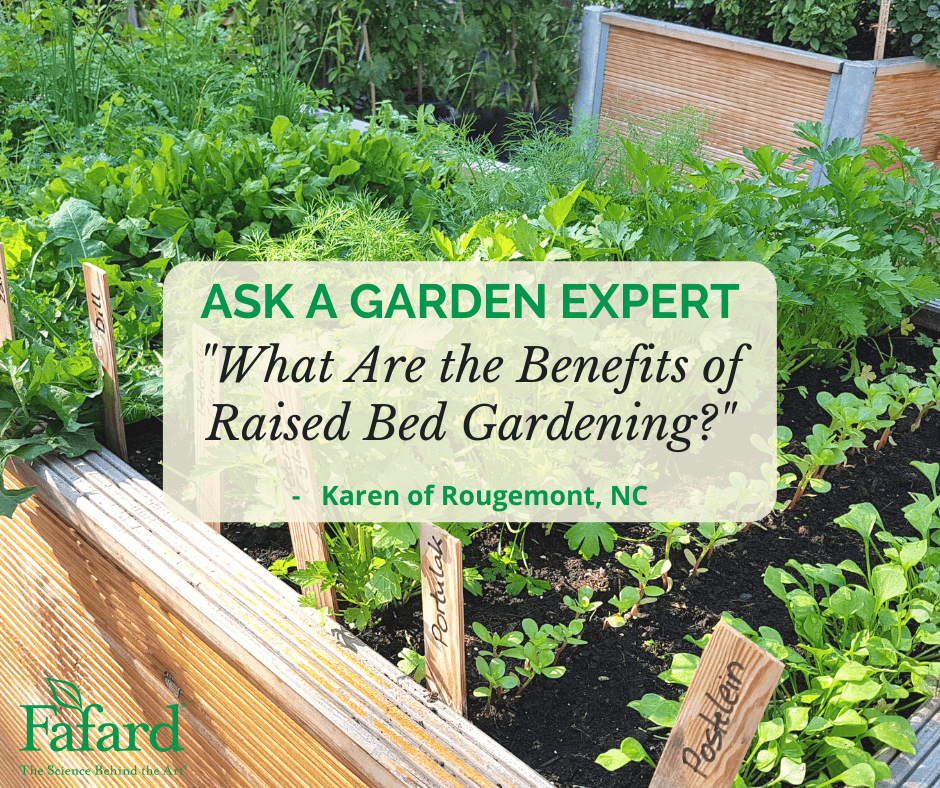
“Are raised beds easy to grow in and maintain? I live in North Carolina. During the winter can I put a tarp-type Greenhouse over them to help protect vegetables from the cold.” Question from Karen of Rougemont, North Carolina
Answer: There are many benefits to growing in raised beds and very few downsides. Here are the pros and cons of raised bed gardening, followed by methods to help maintain your garden through winter.
Pros of Raised Bed Gardening
- Deeper, Lighter Soil: If you fill your raised beds with good soil from the start, it helps root crops grow deeper and all plants set deeper roots for higher yields. We recommend using either one-part ground soil to one-part Fafard® Natural & Organic Potting Mix or Fafard Premium Natural & Organic Compost. Be sure to mix it well until uniformly combined. Top off with an amendment yearly.
- Easier Weeding: Raised beds are higher, have looser soil, and often cover a smaller area, making them easier to weed.
- Easier Harvest: Because they are raised, the beds are easier to harvest and replant. They also make upkeep and harvest cleaner, especially when beds are surrounded by pebble, straw, or cut grass. After a rain, mud is not a problem.
- Easy Planning and Rotation: When you have just a few geometric beds, it is easier to design plantings for yearly rotation (Click here to learn more about the importance of rotating crops.)
Cons of Raised Bed Gardening
- Initial High Cost: Raised beds are not inexpensive to install, if you start out right.
- Less Space for Big Crops: Unless your beds are large and you have trellising, you have less space for large crops like vining pumpkins, squash, and melons or multiple rows of corn.
- Replacement: Eventually your beds will need to be replaced. Metal and plastic options last longer. Cedar raised beds are also long-lasting. Never use treated wood to create raised beds because the wood contains heavy metals that can leach into the soil and be taken up by crops.
Raised Bed Covers
Floating hoop covers are the easiest and best-insulating covers to extend growing in raised beds. You also may consider adding a cold frame to your raised-bed plan. They make it easiest to continue growing herbs and greens through winter. (Click here to learn more about cold-frame gardening.)
I hope that this helps!
Happy Gardening,
Jessie Keith
Fafard Horticulturist

